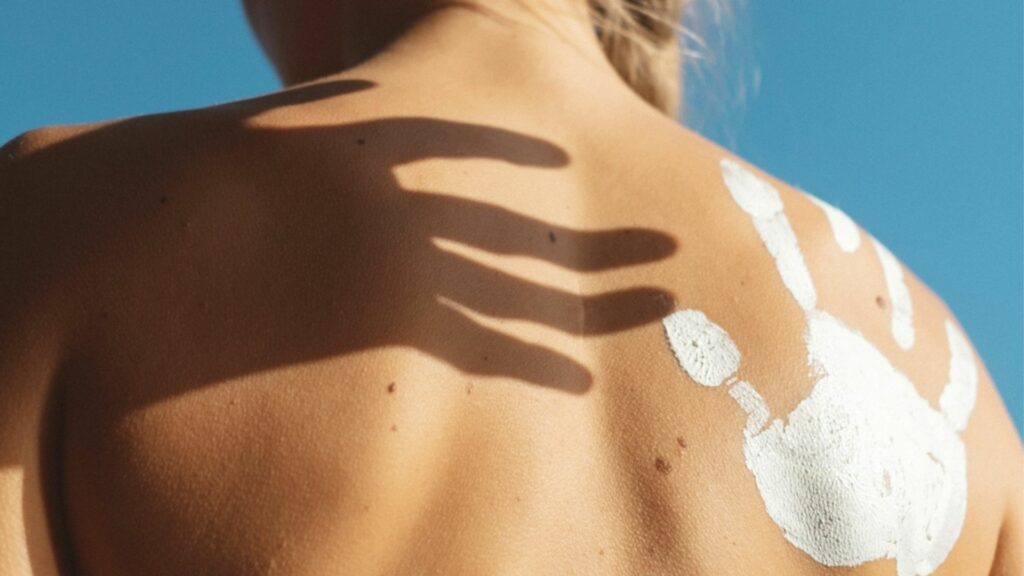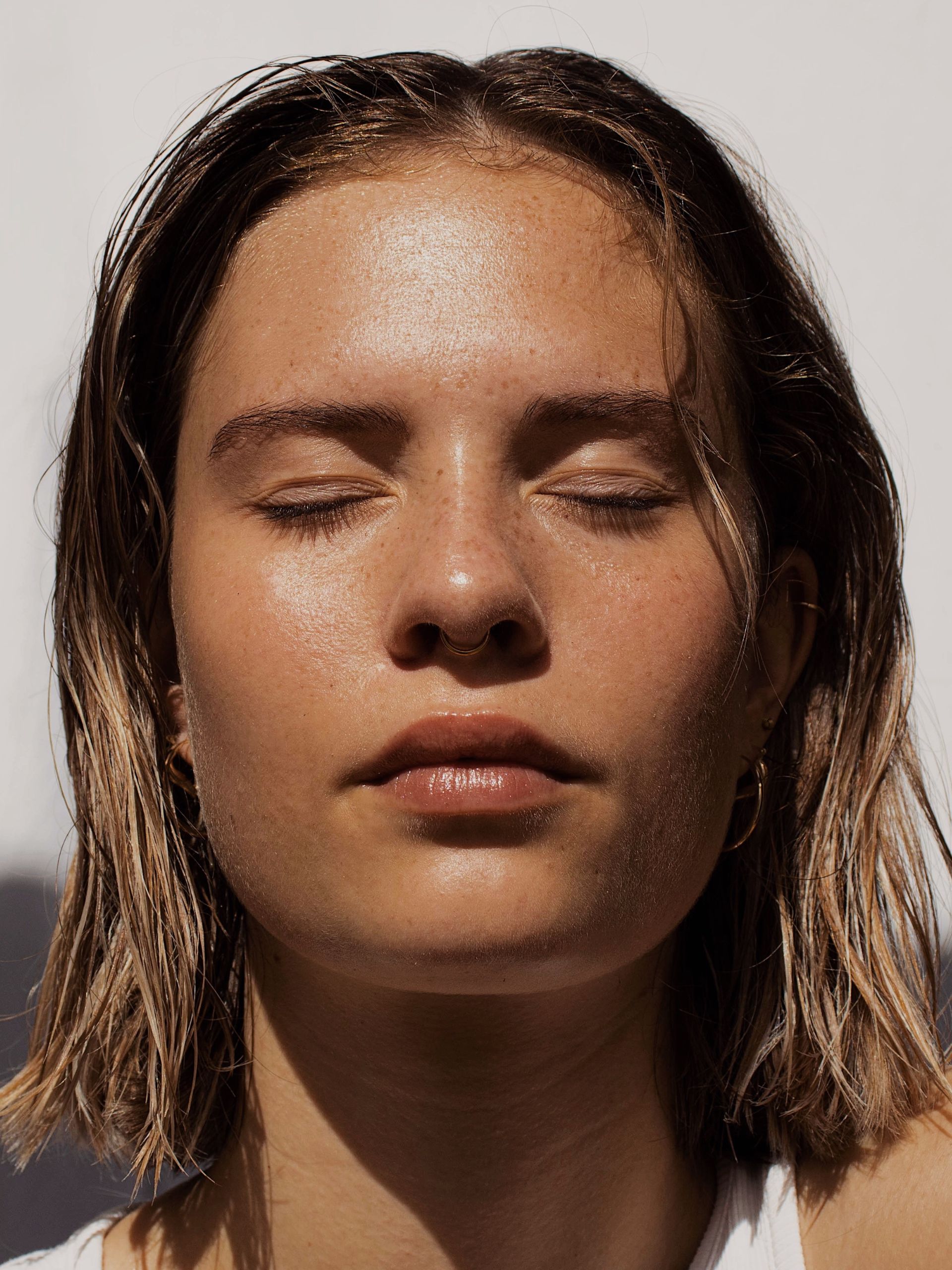
- What exactly is Zinc?
- How Zinc benefits your body when taken orally
- How Zinc benefits your body when applied to skin
- How Zinc can help in your fight against acne, pimples, blemishes, and dark spots
- How much Zinc should you take for acne?
- Food sources of Zinc
- Best tips for taking Zinc
- Zinc-based skincare is also great for sensitive and red skin
- The Bottom Line
You might know it for being a cold-fighter, but zinc’s benefits extend far beyond the sniffles. Zinc can be a powerful ally in your fight for clear, healthy skin. Zinc holds incredible potential for transforming your skin, especially if you’re battling breakouts, blemishes, or acne.
Whether taken orally as a supplement or applied topically, zinc can offer numerous benefits.
What exactly is Zinc?
Zinc is an essential trace mineral that plays a crucial role in numerous bodily functions. It’s vital for maintaining a healthy immune system, healing wounds, contributing to healthy hair and nails [1] and synthesizing proteins and DNA.
But for our skin-obsessed selves, zinc’s magic lies in its anti-inflammatory and antioxidant properties.
How Zinc benefits your body when taken orally
Taking a daily zinc supplement can be a great way to ensure you’re getting enough of this vital mineral. Here’s what zinc does for your overall health:
- Boosts the immune system: Zinc plays a crucial role in the development and function of immune cells, helping your body fight off infections more efficiently [2].
- Supports wound healing: Zinc helps your body produce collagen, a protein essential for healthy skin and wound repair [3].
- Anti-Inflammatory Properties: Zinc reduces inflammation, which is often a significant factor in acne and other skin conditions.
- Hormonal Regulation: Zinc helps balance hormone levels, potentially reducing hormone-induced breakouts.
- May regulate blood sugar: Studies suggest zinc may improve insulin sensitivity and help manage blood sugar levels [4].
Potential side effects
While zinc supplements are generally safe, taking high doses can lead to some side effects like:
- Nausea and vomiting, especially if taken on an empty stomach.
- Stomach cramps
- Loss of appetite
- Metallic taste in the mouth
- Copper deficiency with long-term, high-dose usage.
- Potential interactions with certain medications, such as antibiotics and diuretics.
It’s important to note that these side effects are more common with high doses (exceeding 40mg per day).
Always consult your doctor before starting any new supplements, especially if you’re pregnant, breastfeeding, or have any underlying health conditions.
How Zinc benefits your body when applied to skin
Zinc oxide, a form of zinc commonly found in skincare products, offers a range of benefits for your skin:
- Sun protection: Zinc oxide is a physical sunscreen, meaning it sits on top of the skin and reflects UV rays, providing broad-spectrum protection against harmful UVA and UVB rays. It’s particularly beneficial for those with sensitive skin who can’t tolerate chemical sunscreens.
- Reduces inflammation: Zinc’s anti-inflammatory properties can help soothe redness and irritation caused by acne, eczema, and rosacea.
- Combats bacteria: Zinc has mild antibacterial properties, which can help control acne-causing bacteria on the skin’s surface.
- Promotes healing: Topical zinc can aid in skin repair, regeneration and wound healing thereby minimizing the appearance of scars.
Potential side effects
Topical zinc is generally safe but can sometimes cause:
- Mild skin irritation or dryness, especially with high concentrations.
- Allergic reactions in some individuals.
It’s always best to do a patch test on a small area of your inner arm before applying it to your face.
How Zinc can help in your fight against acne, pimples, blemishes, and dark spots
Acne can be a real struggle, and zinc can be a valuable weapon in your arsenal. Here’s how it helps:
- Reduces inflammation: As mentioned earlier, zinc’s anti-inflammatory properties can calm redness, swelling, and discomfort associated with acne breakouts.
- Regulates oil production: Zinc helps regulate sebum (oil) production, the oily substance that can clog pores and lead to acne.
- Promoting Healing: Zinc accelerates the healing process of acne lesions and can help prevent the formation of scars and dark spots.
- Combats bacteria: Zinc’s antimicrobial properties can help eliminate the bacteria responsible for acne on the skin’s surface.
If you need extra support, check out our cheat sheet for acne-prone skin.
How much Zinc should you take for acne?
The recommended dietary allowance (RDA) for zinc varies by age and gender. For adult women, it’s about 8 mg per day, while men require around 11 mg. Taking excessive amounts of zinc can be counterproductive and lead to side effects.
When targeting acne, higher doses are often used under medical supervision. It’s crucial to consult a healthcare provider before starting any supplementation regimen to avoid potential side effects.
Food sources of Zinc
Incorporating zinc-rich foods into your diet is a great way to ensure you’re getting enough of this essential mineral. Here are some top sources:
- Meat: Beef, pork, and chicken.
- Seafood: Oysters, crab, and lobster.
- Dairy: Milk, cheese, and yogurt.
- Legumes: Chickpeas, lentils, and beans.
- Seeds and Nuts: Pumpkin seeds, cashews, and almonds.
- Whole Grains: Quinoa, rice, and oats.
Best tips for taking Zinc
- Consult your doctor: Before starting any new supplements, especially if you have underlying health conditions or are taking medications, talk to your doctor. They can advise on the appropriate dosage and potential interactions.
- Dosage is key: Don’t exceed the recommended daily allowance (RDA) for zinc. Too much can cause side effects.
- Take it with food: Taking zinc with food can help improve absorption and minimize stomach upset.
- Food vs. supplements: Aim to get most of your zinc from dietary sources. Supplements can be helpful if you have difficulty meeting your needs through food alone.
- Patch Test: Always perform a patch test before using a new zinc product to ensure you don’t have an adverse reaction.
Zinc-based skincare is also great for sensitive and red skin
Zinc’s gentle, anti-inflammatory properties make it a fantastic choice for those with sensitive or easily irritated skin.
Look for moisturizers, sunscreens, and calming serums containing zinc oxide. These products can help soothe redness, irritation, and even rosacea flare-ups.
The Bottom Line
Zinc is a powerful ally for healthy skin, both internally and externally. Zinc might just be the missing piece in your skincare routine. With its anti-inflammatory, antimicrobial, and healing properties, it’s a versatile addition that can help you achieve clearer, healthier skin.
Here are some key takeaways:
- Zinc supports overall health by boosting the immune system, aiding wound healing, and potentially regulating blood sugar.
- Oral zinc supplements may help with acne but consult your doctor before starting them.
- Topical zinc oxide offers sun protection, reduces inflammation, combats bacteria, and promotes healing.
- Zinc-based skincare is ideal for sensitive skin.
- Aim to get most of your zinc from a balanced diet rich in seafood, meat, legumes, and nuts.
Remember: Consistency is key! Whether incorporating zinc-rich foods into your diet, using topical zinc products, or considering supplements (with your doctor’s guidance), be patient and allow your skin time to adjust and reap the benefits.
REFERENCES
- Haneke, Eckart, and Robert Baran. “Micronutrients for hair and nails.” Nutrition for healthy skin: Strategies for Clinical and Cosmetic Practice. Berlin, Heidelberg: Springer Berlin Heidelberg, 2010. 149-163.
- Gammoh, Nour Zahi, and Lothar Rink. “Zinc in infection and inflammation.” Nutrients 9.6 (2017): 624.
- Lin, Pei-Hui, et al. “Zinc in wound healing modulation.” Nutrients 10.1 (2017): 16.
- Gunasekara, P., et al. “Blood Sugar lowering effect of zinc and multi vitamin/mineral supplementation is dependent on initial fasting blood glucose.” Journal of Diabetology 2.1 (2011): 3.
- —. “Can You Use Zinc for Acne Spots and Scars?” Healthline, 8 Mar. 2019, www.healthline.com/health/beauty-skin-care/zinc-for-acne#topical-products.
- —. “Zinc for Blemishes.” Paula’s Choice Skincare, 15 July 2024, www.paulaschoice.com.au/expert-advice/skincare-advice/acne-and-breakouts/does-zinc-help-with-acne.html.



